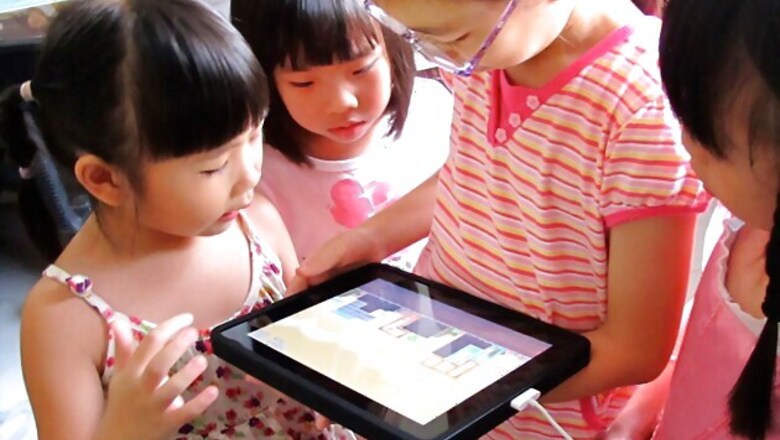
views
Boston: Parents, take note! Using tablets, smartphones or e-books to distract children may be detrimental to their social-emotional development, a new study suggests.
Researchers reviewed many types of interactive media available and raised important questions regarding their use as educational tools, as well as their potential detrimental role in stunting the development of important tools for self-regulation.
Early research suggests that interactive media, such as electronic books and learn-to-read applications can be useful in teaching vocabulary and reading comprehension, but only in children preschool-age or older.
The potential educational benefits for children under two is questioned, as research on interactive media in this age group is scant, and it is well-known that infants and toddlers learn best through hands-on and face-to-face experiences.
Researchers note that while mobile device use by children can provide an educational benefit, the use of these devices to distract children during mundane tasks may be detrimental to the social-emotional development of the child.
"If these devices become the predominant method to calm and distract young children, will they be able to develop their own internal mechanisms of self-regulation?" researchers said.
"It has been well-studied that increased television time decreases a child's development of language and social skills. Mobile media use similarly replaces the amount of time spent engaging in direct human-human interaction," said Jenny Radesky from Boston University School of Medicine.
Researchers question whether heavy device use during young childhood could interfere with development of empathy, social and problem solving skills that are typically obtained by exploring, unstructured play and interacting with peers.
"These devices also may replace the hands-on activities important for the development of sensorimotor and visual-motor skills, which are important for the learning and application of math and science," added Radesky.
The research was published in the journal Pediatrics.


















Comments
0 comment